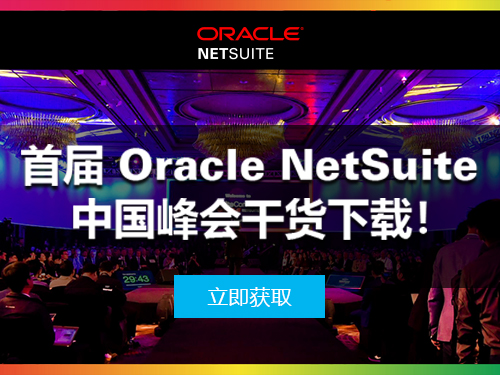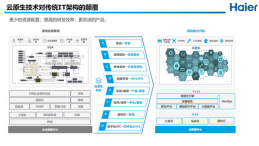Piff在本周三舉行的2011年IDC亞太云計算大會上說,近期對亞太地區(包括日本)公司進行了一項關于云計劃的IDC調查,此次調查也反映出了對云計算的情非得已。調查結果顯示,與發展中國家市場(如:印度尼西亞、泰國)相比,發達國家市場(如:新加坡、香港)對云服務的使用更加謹小慎微。
Piff說,不過,當前企業擔心的問題正在慢慢提出。就服務可靠性和正常運行時間來說,公共云的用戶逐漸意識到了這些服務的含義,他補充道。
Piff舉例指出了亞馬遜網絡服務系統(AWS)四月遭受的服務中斷。他指出:在這種情況下,雖然云服務供應商有責任維護服務正常運行,但是用戶也要務必確認已經按照AWS的服務等級協議建議的方法對自己的故障轉移系統進行了計劃和部署。分析指出,公共云自身不安全,所以用戶無論如何要確保有應變計劃。
他進一步引用了五月IDC云計算論壇上產生的民意測試結果,結果顯示,49.7%的被調查者認為2015年以前,主要的公共云供應商會有效處理正常運行隱患,可靠性將不再是移入云的主要問題。
關于數據主權的問題,Piff 稱,云服務供應商意識到那些特定垂直行業的企業(如:金融業)總是需要在本地存儲數據。他說,亞太地區將傾注大規模投資建設新數據中心,截至今天六月三十號,投資數額已達37億美元。
以Google為例,九月宣布其正在新加坡建立一個數據中心,與此同時,云計算和管理托管服務供應商Softlayer Technologies也在同月推出了自己的數據中心。
考慮到以上情況,Piff 預計2015年前云計算將處于主流地位。
“未來四年云計算用戶將會取得很大進步,整合的云計算系統將和其他類一起涌出。云計算將成為IT類成熟的一員。”
挖掘企業狀態
Arista Networks副總裁、論壇發言人 Doug Gourlay說,雖然云計算的應用將要騰飛,但是公司需要接受“云計算不是企業”的說法。
他指出,企業通常傾向于構建一次,然后“祈禱”系統之后不要出現問題。然而,這與云計劃應有的處理方法相悖。
Gourlay說:“要想取得云計算的成功,IT業需要快速構建、部署、失敗,然后從錯誤中吸取教訓,進行二次部署。這一過程需要不
他還呼吁公司遠離傳統的IT供應商,如:Cisco Systems,、IBM 和 Oracle,因為他們的云版本不劃算、擴展性差。
他建議,再重新考慮IT基礎設施以及企業用戶的配置技術時,應仿效網絡公司,如:Facebook,、Amazon 和Google等。
SINGAPORE--Cloud computing will reach mainstream adoption in the enterprise market by 2015 when key issues such as security, service availability and data sovereignty are expected to be ironed out.
According to Simon Piff, associate vice president for enterprise infrastructure research at IDC Asia-Pacific, businesses today are still hesitant in utilizing cloud computing for much of their IT needs due to concerns over security, service reliability, data location and sovereignty, as well as vendor support.
This reluctance was reflected in a recent IDC survey on companies in Asia-Pacific, excluding Japan, which were quizzed on their cloud plans, Piff said during his presentation at IDC Asia-Pacific's Cloud Conference 2011 held here Wednesday. The survey findings revealed that companies in developed markets such as Singapore and Hong Kong showed more reticence in using cloud services, compared with their counterparts in developing markets such as Indonesia and Thailand, the analyst noted.
However, the concerns enterprises have are currently being addressed, he said. In the case of service reliability and uptime, for instance, public cloud users are increasingly more aware of the implications associated with these services, he added.
Piff pointed to the service outages Amazon Web Services (AWS) suffered in April as an example. He noted that, in this case, while the cloud service provider had a responsibility in maintaining uptime, customers also recognized they would have to design and deploy their own failover system as recommended by AWS in its service level agreement. The analyst added that public cloud was "inherently insecure" so users should have contingency plans anyway.
He further cited a poll conducted at an IDC cloud forum held in May, which revealed that 49.7 percent of respondents agreed that, by 2015, major public cloud providers would have addressed uptime concerns so effectively that reliability would be a non-issue in moving to the cloud.
As for the issue of data sovereignty, Piff said cloud service providers recognize that enterprises in certain industry verticals such as financial will always need to house their data locally. To address this, he said "massive investments" are being poured into building new data centers across the Asia-Pacific region, to the tune of US$3.7 billion as of Jun. 30 this year.
Google, for instance, announced in September that it was setting up a data center in Singapore while Softlayer Technologies, a cloud computing and managed hosting service provider, also launched its data center here that same month.
With these factors in mind, Piff expects cloud computing to achieve mainstream status by 2015.
"Cloud users [will have] made significant progress in the [next] four years and integrated cloud systems well with the rest of the class. Cloud can then be considered a full-fledged member of the IT class."
Ditch enterprise mindset
For cloud computing adoption to take off, though, companies will need to accept that "cloud is not enterprise", said Doug Gourlay, vice president of Arista Networks, who was also a speaker at the forum.
He noted that enterprises typically have the mindset of building once and "praying" that the system will not fail thereafter. This, however, runs counter with how cloud projects should be approached.
Gourlay said: "For cloud to succeed, IT needs to build it, deploy, fail quickly, then learn from the mistakes and deploy again. There needs to be constant innovation in this space."
He also called on companies to move away from traditional IT vendors such as Cisco Systems, IBM and Oracle because their vision of cloud is not cost-efficient and scalable.
Instead, he suggested businesses model after Web companies such as Facebook, Amazon and Google when it comes to rethinking their IT infrastructure and provisioning technology for business users.










































































































 京公網安備 11010502049343號
京公網安備 11010502049343號